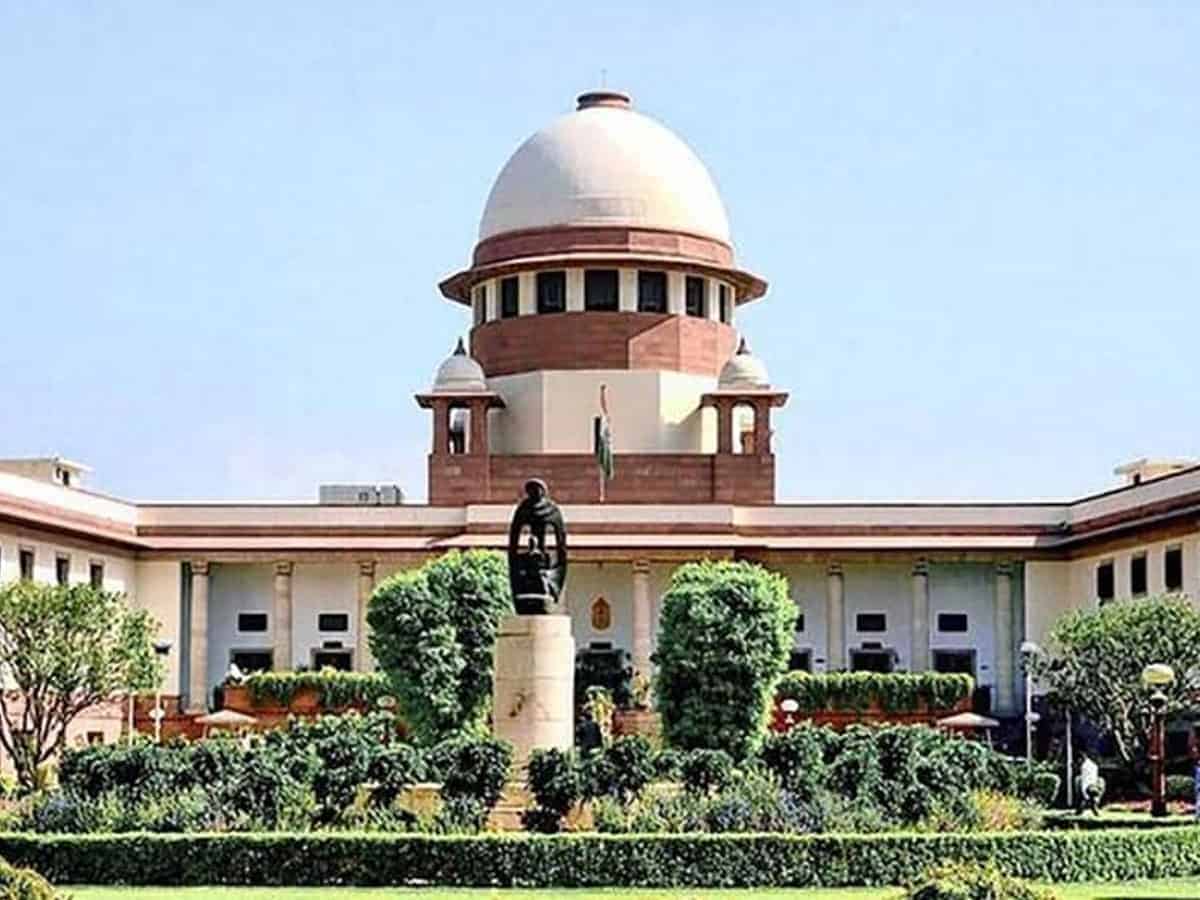
New Delhi: The Supreme Court on Tuesday granted six more weeks’ time to the Central government to hold consultations with various State governments on the issue of granting minority status to Hindus in states where other communities outnumber them.
A bench of Justices Sanjay Kishan Kaul and AS Oka posted the matter for October 19, after the Centre sought six more weeks for wider consultation with stakeholders on the issue.
The bench took into note the status report filed by the Ministry of Minority Affairs which said meetings were held with the states on the issue.
The apex court said that it is stated in the status report that meetings with state governments have been held and some more time is required to have a wider consultation with all stakeholders.
The Ministry in its status report, submitted to the court, has stated that comments/views of the state governments including those of Nagaland, Arunachal Pradesh and Union Territory of Jammu and Kashmir have not been received as of date.
On May 10, the top court had said it does not appreciate the Centre changing its stands in the plea seeking minority status for Hindus in some States.
The Supreme Court was hearing pleas, including one filed by advocate Ashwini Kumar Upadhyay, seeking directions for framing guidelines for the identification of minorities at the state level, contending that Hindus are in minority in 10 states.
Earlier, the Centre had filed an affidavit stating that the power to notify minorities is vested with the Union government and any decision in this regard will be taken after discussion with State governments and other stakeholders.
However, in March it told the apex court that certain States, where Hindus or other communities are less in number, can declare them a minority community within their own territories, to enable them to set up and administer their own institutions.
In March putting the onus on States, the Central government in an affidavit had stated that State governments too have the power to declare communities as minority, adding that, “state governments can also declare a religious or linguistic community as a ‘minority community’ within the state”.
States can also declare a religious or linguistic group as a minority community within its territory, as Maharashtra did in the case of Jews in 2016, Karnataka notified Urdu, Telugu, Tamil, Malayalam, Marathi, Tulu, Lamani, Hindi, Konkani, and Gujrati languages as minority languages over there, it had said.
The plea filed in the year 2020 by Upadhyay, stated that as per the 2011 Census, Hindus were a minority in Lakshadweep, Mizoram, Nagaland, Meghalaya, J&K, Arunachal Pradesh, Manipur, and Punjab and that they should be given minority status in these states in accordance with the principle laid down by the Supreme Court in its 2002 TMA Pai Foundation ruling.
The apex court in the TMA Pai case had said that for the purposes of Article 30 which deals with the rights of minorities to establish and administer educational institutions, religious and linguistic minorities have to be considered state-wise.
Under Section 2(c) of the National Commission for Minorities Act, 1992, the Centre had in 1993 notified five communities — Muslims, Sikhs, Buddhists, Parsis and Christians — as minorities.
The plea had sought direction to the Centre to lay down guidelines for the identification of minority at the state level saying the Hindus are in minority in 10 states and are not able to avail the benefits of schemes meant for minorities.
In his plea, the petitioner had also challenged the validity of Section 2(f) of the National Commission for Minority Education Institution Act 2004 for giving unbridled power to the Centre and being manifestly arbitrary, irrational and offensive.
The plea had said, “Direct and declare that followers of Judaism, Bahaism and Hinduism, who are minorities in Laddakh, Mizoram, Lakshadweep, Kashmir, Nagaland, Meghalaya, Arunachal Pradesh, Punjab and Manipur, can establish and administer educational institutions of their choice in the spirit of the TMA Pai Ruling.”



